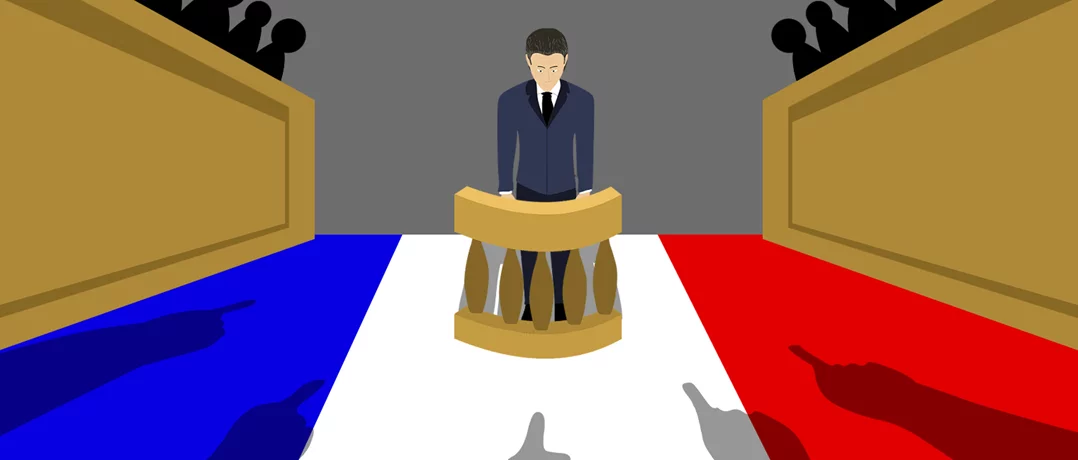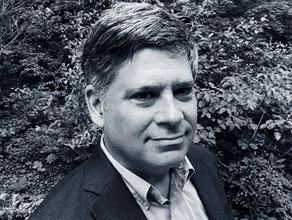The conviction of Nicolas Sarkozy for corruption offers a narrow form of justice that misses the broader opportunity to investigate France’s role in Libya’s collapse, exposing how Western interventions driven by mixed motives continue to shape instability across the Middle East, from Benghazi to Gaza.
What the Sarkozy verdict won't tell us about Libya
What the Sarkozy verdict won't tell us about Libya


On September 25, 2025, a French court sentenced former President Nicolas Sarkozy to five years in prison for criminal conspiracy, effective immediately, finding he had engaged in a "corruption pact" to solicit up to 50 million euros from Muammar Gaddafi's regime for his 2007 presidential campaign. Yet the court acquitted Sarkozy on corruption charges themselves, unable to find incontrovertible evidence that any Libyan money actually reached his campaign coffers.
The verdict is nearly unprecedented in modern French politics. Sarkozy, who has filed appeals, has denounced it as a "shame" for France and politically motivated, a charge echoed even by far-right political leader Marine Le Pen, herself convicted on corruption charges in March. But beyond French domestic politics, this narrow legal finding represents a profound missed opportunity: to establish and understand the connections among multiple destabilizing forces that emerged from Gaddafi's toppling in 2011 and have shaped the Middle East ever since.
Most critically, the verdict leaves untouched a question with enormous geopolitical implications: Was there a connection between Sarkozy's alleged solicitation of Gaddafi's money and his role, four years later, in orchestrating the international coalition that destroyed the Libyan regime and destabilized the region on multiple fronts?
From Rehabilitation to Revenge:
The allegations against Sarkozy have a complicated history. Gaddafi's son Saif al-Islam, once the regime's Western-educated face of reform, first made the accusation as NATO bombs fell on Libya in March 2011, timing that made his claims impossible to assess objectively but planted the seeds of a story that persisted. The story gained credibility in 2016 when French-Lebanese businessman Ziad Takieddine claimed he had personally carried suitcases of cash from Gaddafi to Sarkozy's associates. But in 2020, Takieddine recanted and fled to Lebanon, beyond French jurisdiction. He died of a heart attack two days before the Sarkozy verdict was announced, a witness whose shifting testimony is now the subject of an ongoing witness-tampering case against Sarkozy.
What makes the allegations plausible is Sarkozy's documented relationship with Gaddafi during his first years in office. After his 2007 election, Sarkozy became one of Gaddafi's principal champions for international rehabilitation, alongside British Prime Minister Tony Blair. He traveled to Tripoli to discuss business deals and subsequently hosted Gaddafi at the Élysée Palace for a lavish five-day state visit in 2007. Prosecutors attempted to link Sarkozy's fundraising solicitations while Interior Minister (2005-2007) to his efforts to free the "Bulgarian Nurses", five nurses and a Palestinian doctor accused by Gaddafi of infecting Libyan infants with HIV and sentenced to death. The nurses were released in July 2007, and Sarkozy received Bulgaria's highest medal for his role. But the court could not prove this was part of a corruption scheme.
The Unexplained Reversal:
Four years after championing Gaddafi's return to legitimacy, Sarkozy executed a dramatic about-face. In 2011, as Arab Spring revolutions swept Tunisia and Egypt and uprisings erupted in Libya's eastern cities, Sarkozy became the principal advocate for overthrowing the man he had recently welcomed to Paris.
At the time of 9/11, Gaddafi's Libya had been under punishing U.S. and international sanctions for more than a decade in connection with the 1988 bombing of Pan Am Flight 103 over Lockerbie, Scotland, and the 1989 bombing of a French UTA DC-10 over Niger. The George W. Bush administration saw Gaddafi as both a source of critical information on Al Qaeda (an arm of which was Gaddafi's arch enemy) and, simultaneously, a poster child for the argument that the U.S. invasion of Iraq could force a sweep of democracy across the Middle East.
But in 2011, Sarkozy's enthusiasm for intervention initially annoyed Secretary of State Hillary Clinton. After meeting with Sarkozy and Libyan rebel leader Mahmoud Jibril, however, she told colleagues he was "absolutely right." Clinton, in turn, is widely credited with tipping a reluctant President Obama to support intervention, overriding warnings from Defense Secretary Robert Gates about "mission creep" and the risk of repeating Iraq's catastrophic regime-change operation.
With UN authorization to use "all necessary means" to protect civilians, Sarkozy ordered French jets to strike first, hitting a miles-long convoy approaching Benghazi. French warplanes struck again near Sirte in October 2011, disabling Gaddafi's convoy and enabling rebel forces to capture him as he hid in a drainage pipe. He was killed shortly afterward.
Was Sarkozy's zeal for removing Gaddafi motivated by genuine concern for Benghazi's civilians? A desire to compensate for France's perceived failure to support protesters in Tunisia and Egypt? Or a need to eliminate someone who could expose financial corruption? The verdict provides no answer.
Libya’s Long Shadow
Understanding Sarkozy's motivations matters because few in the West fully appreciate the consequences of the botched Libyan intervention.
Libya became what one might call a regional dirty bomb. Militants and weapons seeped across borders, bolstering Al Qaeda in North Africa and Syria and helping create conditions for ISIS's expansion. The country descended into civil war that continues today, a conflict fueled by internal divisions but also by the misguided and Machiavellian schemes of external actors.
In the United States, Libya's collapse produced its own political catastrophe. The September 2012 Al Qaeda attack on the U.S. mission in Benghazi killed Ambassador Chris Stevens and three other Americans. That attack became foundational fodder for a social media-fueled frenzy that consumed American politics through 2015. As I documented in my 2022 book Benghazi: A History of the Fiasco That Pushed America and its World to the Brink, the attack and especially attempts to manage the optics became the connective tissue linking and amplifying conspiracy theories that collectively tipped the scale toward Donald Trump's 2016 victory over Hillary Clinton.
The attack also produced what became known in Washington as the "Benghazi Effect" a pervasive risk aversion in U.S. foreign policy whereby officials feared taking actions that might trigger political firestorms at home. The Obama administration expanded Bush's drone wars in Yemen because 77 percent of Democrats approved of "remote-controlled warfare." Diplomacy around the Israeli-Palestinian conflict was downscaled in favor of an Iran deal whose positive elements were undermined by U.S. reluctance to counter Iranian regional expansion creating dynamics that have made the current Gaza conflict so explosive.
Obama would later call his failure to prepare for "what came the day after" in Libya his "biggest regret" as president. That phrase now echoes in discussions of the Trump administration's Gaza plan.
History’s Echo in Gaza
The Sarkozy verdict arrives as the Trump administration pushes to close a deal on Gaza an irony rich with instructive parallels.
Both situations feature civilian populations hijacked by ideological groups, external military intervention, endemic corruption, and crises of political legitimacy. Both involve an international community split between actors deeply complicit in the conflict and those seeking quick political advantage with little regard for long-term stability.
The Trump plan may yet succeed in ending the current bloodshed and returning hostages. But the critical question is whether this represents a sustainable political settlement, or merely a pause before the next regional conflagration.
If a functioning, peaceful Palestinian state is the goal, a Western-dominated oversight board featuring Trump and Tony Blair who championed Gaddafi's rehabilitation to promote British business before pivoting to Israeli-Palestinian peacemaking risks suffering the same legitimacy deficit as Libya's 2015 UN-mediated National Dialogue Conference, another stop-gap effort, which enabled some of the country's most corrupt elements to assume leadership.
Libya, long considered marginal to the Middle East, has profoundly shaped the world we inhabit. The combination of oil wealth, instability, external intervention, and incomplete information created opportunities for leaders to pursue political and personal gain. Virtually everyone involved was scorched not least the Libyans, who have endured internal warfare for more than a decade.
Whatever Sarkozy's deeper role in Libya's unraveling, it was heavy. The narrow scope of his conviction means we may never fully understand what drove his decisions in 2011 or learn the lessons those decisions should teach us. One can only hope that those now planning Gaza's next phase can see recent history clearly enough to avoid repeating it. The stakes, once again, extend far beyond one conflict's borders.


